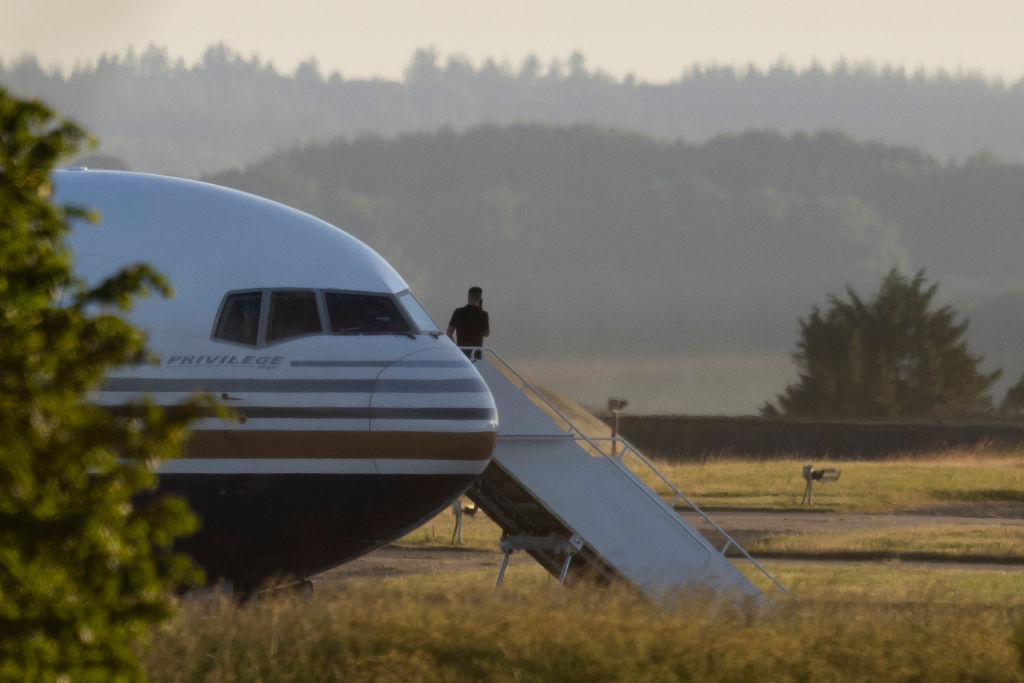It’s unusual – not to say uncomfortable – for the most senior judge in England and Wales to be overruled by two of his colleagues. But that’s what happened this morning when the Court of Appeal stopped the government sending migrants to Rwanda.
Lord Burnett of Maldon, the lord chief justice, agreed with the government. He thought that an agreement with Rwanda in 2022 – taken together with assurances from the Rwandan government – meant there was no real risk that asylum-seekers flown from the UK would be sent on to countries where they would face persecution or other inhumane treatment, which would contradict the Human Rights Act.
But his two colleagues in the Court of Appeal, the master of the rolls Sir Geoffrey Vos, and the vice-president of the civil division, Lord Justice Underhill, disagreed. In their view, deficiencies in Rwanda’s asylum system meant there were substantial grounds for thinking that people with a good asylum claim would face precisely that risk. As Lord Burnett was outnumbered two to one, the challenge to the Rwanda policy succeeded.
All three judges accepted that the Rwandan assurances had been given in good faith and were intended to address any defects in its asylum processes. But Vos and Underhill decided that Rwanda’s arrangements for deciding asylum claims were still inadequate by the summer of 2022, when the migrants were due to be removed.
The ruling does mean that the Home Office could now send migrants to a country other than Rwanda. That’s an important victory for the government.
By a majority, though, the Court of Appeal reversed the High Court’s decision that Rwanda was a safe third country. Summing up, the Lord Chief Justice said that ‘unless and until the deficiencies in its asylum processes are corrected, removal of asylum-seekers to Rwanda will be unlawful.’
Inevitably, the Home Secretary will ask the Court of Appeal for permission to appeal to the Supreme Court. Although the Court of Appeal often refuses permission, I think it’s highly likely it will be granted in this case.
The appeal judges were, after all, divided on the key issue. Indeed, if you add up all the judges which ruled in the High Court and the Court of Appeal, it was three to two in the government’s favour. It’s clearly in the public interest for that disagreement to be resolved at the highest level.
The government has a week to put in its grounds of appeal, and we can expect a decision on permission during July. Assuming it’s favourable to the government, a full hearing before the Supreme Court might be scheduled for late September or October. So the government lives to fight another day.
But what if it loses?
In a case called Soering, the human rights court said that fugitives could not be removed if there were substantial grounds for believing they would suffer inhuman or degrading treatment, contrary to article 3 of the human rights convention.
Short of leaving the convention and the Council of Europe that enforces it, the UK cannot simply legislate its way out of these obligations. Derogation from the convention is not available in normal times.
So the government would face the deeply unattractive option of toughing it out. This might involve four stages.
First, ensure that procedures in Rwanda meet the highest standards possible.
Second, legislate to overturn the decision of the Supreme Court in UK law.
Third, ignore any interim measures that the Strasbourg court imposes when you start sending migrants to Rwanda.
Finally, defend the action that those migrants would inevitably take against you in the human rights court – and hope you win.
In the meantime, though, all flights remain on hold. Indeed, the Home Office has not yet reconsidered the cases of the ten individual asylum-seekers who brought the original challenge. In the High Court, they established that the Home Office had not considered their individual circumstances fairly. They cannot be removed unless their cases are looked at again.
It has taken the appeal judges two months to write their 160-page judgment. We don’t know how much of that time was taken up with them trying to persuade each other to change sides. All three stressed that their decision implied ‘no view whatever about the political merits or otherwise of the Rwanda policy.’ This was entirely a matter for the government, they insisted. The judges’ concern was only whether the policy complied with the law laid down by parliament.
As Burnett explained in his contribution to the joint judgment, the case turned on their assessments of the evidence. Burnett looked at the main issue as if he had been a trial judge. He considered whether the arrangements would ensure that the risk of migrants being wrongly sent back was so low that there would be no breach of the right not to suffer inhuman or degrading treatment. In his view, the migrants had not proved otherwise.
The Supreme Court is unlikely to seek new evidence. But whether the justices will side with Burnett or share the concerns expressed by his two senior colleagues is impossible to predict. As judges who sit at the very apex of the system are fond of saying, they are not final because they are right – they are right because they are final.






Comments